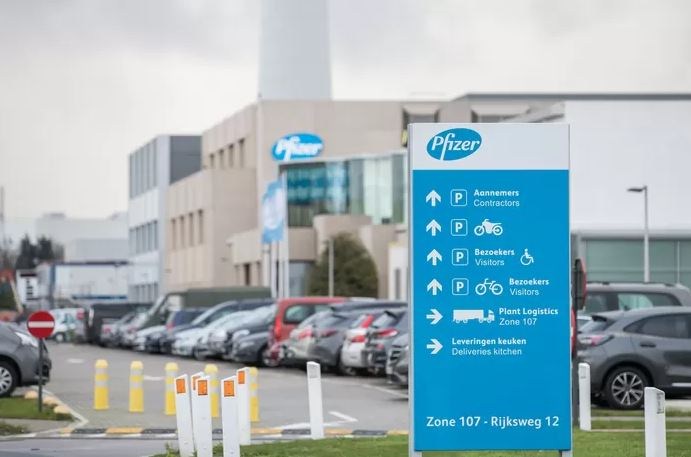The production of the American pharmaceutical giant Pfizer's coronavirus vaccines in Antwerp has contributed towards just under half of the total export turnover in Belgium in the second quarter of this year.
Pfizer sold $7.8 billion (€6.57 billion) in coronavirus vaccines, just under half of the total $19 billion (€16 billion), according to De Tijd, which added that this is an important boost to the Belgian economy.
More than 100 million doses of the vaccine leave the production site in Antwerp, Puurs-Sint-Amands, every month, to be shipped to other countries in the EU and further abroad.
Although Pfizer itself did not give much away about the financial significance of this activity, the monthly export statistics collected by the National Bank of Belgium did provide some insight.
Related News
- These are the Covid symptoms for those already vaccinated
- Vaccination should be mandatory or encouraged with Covid pass, says expert
- Only 4 in 10 young people in Brussels received first vaccine dose
Especially in the first four months of this year, Pfizer played a big role in the vaccine export from Belgium, which exported coronavirus vaccines worth €3.8 billion, of which Pfizer reported sales of its vaccines equivalent to €2.9 billion euros.
Belgium's total exports in 2019, before the coronavirus crisis, accounted for €278 billion.
Efficacy studies
These figures almost exclusively include the doses of the Pfizer vaccine based on BioNTech's mRNA technology, which was approved at the end of 2020, and is shipped across the world from the Puurs site, the Kalamazoo location in the US and the small German site of BioNTech.
According to an analysis carried out by Public Health England, being fully vaccinated with this shot gives around 88% protection against symptomatic disease and is 96% effective against hospitalisation when someone is infected with the Delta variant.
However, a recent study has found that the effectiveness of Pfizer/BioNTech's vaccine drops to 84% after six months, according to research involving more than 44,000 volunteers worldwide.
It found that this particular coronavirus vaccine works best in the first two months after the second and last injection, but that after that, it slowly becomes less and less effective.
But the scientists involved in the research, of which the results have not yet been evaluated by other, independent scientists, emphasised that, despite the decrease in effectiveness after six months, the vaccine is still safe and can effectively prevent illness as a result of the virus.
Pfizer recently announced that it is likely that fully vaccinated people will need to receive a third shot within 12 months in order to remain properly protected.

